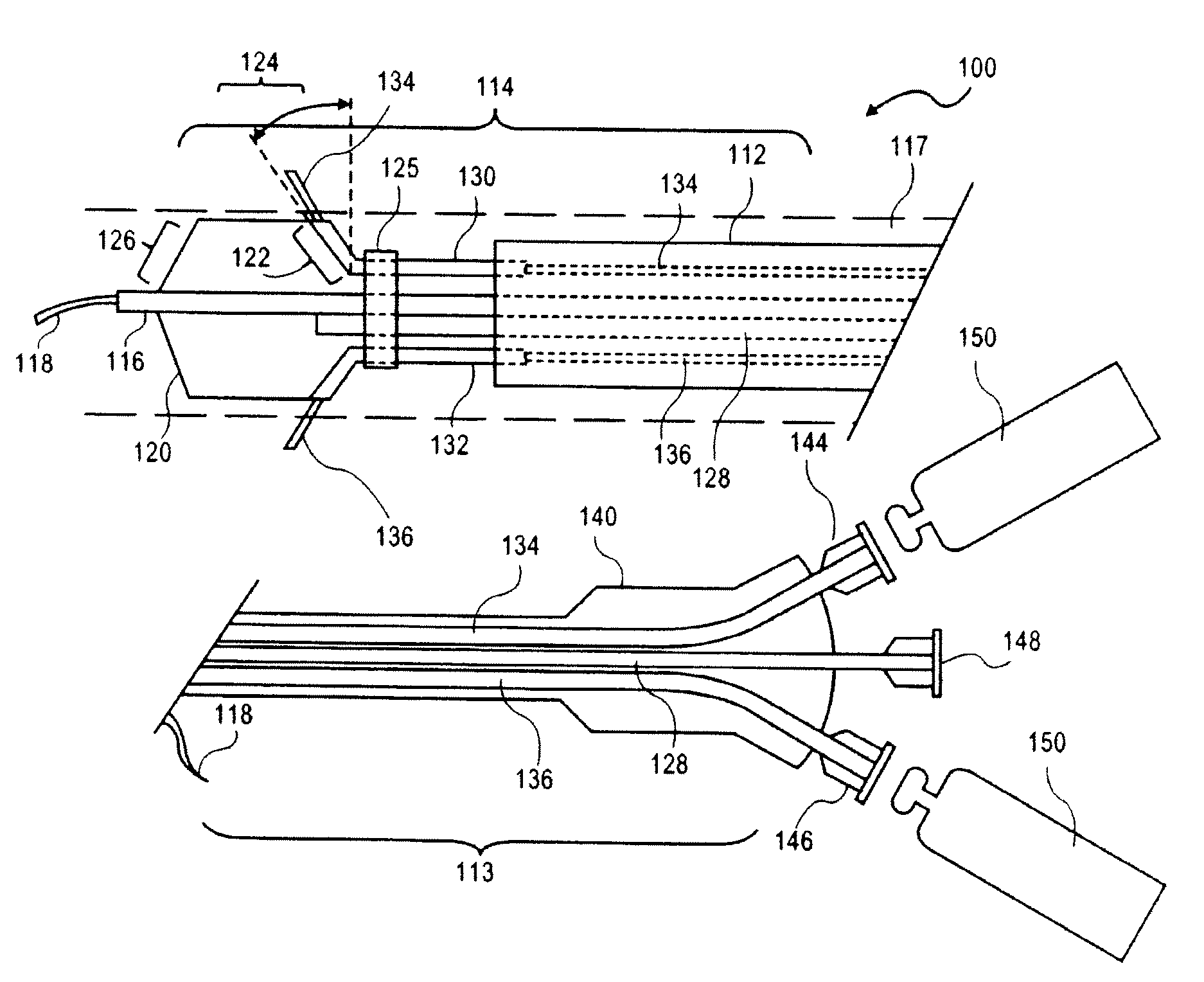Sustained release of apo a-i mimetic peptides and methods of treatment
a technology of mimetic peptides and mimetic peptides, which is applied in the direction of peptide sources, catheters, metabolic disorders, etc., can solve the problems of incomplete protection and achieve the effect of increasing the concentration of apo a-i synthetic mimetic peptides
- Summary
- Abstract
- Description
- Claims
- Application Information
AI Technical Summary
Benefits of technology
Problems solved by technology
Method used
Image
Examples
example 1
[0049]The mimetic peptides described here can be synthesized by both di-tert-butyldicarbonate (boc)-, and N-α-(9-fluorenylmethoxycarbonyl)-N-γ-trityl-L-asparagine (Fmoc)-based solid phase synthesis. Described herein is Fmoc-based solid phase peptide synthesis. Rink amide resins, for example, Rink amide MBHA resin, or Fmoc-PAL-PEG-PS resin are used to install carboxyamides at the C-terminus of the synthesized peptides. For peptides with unmodified C-terminus, Wang resin is used for solid phase peptide synthesis (SPSS). Any other resins for SPSS can be used to synthesize peptides according to embodiments of the invention. Upon completion of peptide synthesis, if necessary, the peptide N-terminus is modified by treatment with, for example, acetic anhydride (10 eq.) and diisopropylethylamine (DIPEA) (10 eq.), or any carboxylic acid derivatives (2-5 eq.) in N,N-dimethylformamide (DMF) / dichloromethane (DCM) (1:1, v / v) with coupling reagent (2-5 eq.) and base (2-5 eq.). Side chain protecti...
example 2
[0052]A mimetic peptide, SEQ ID NO: 4, was mixed with multilamellar vesicles comprised of DMPC. A DMPC chloroform solution was gently dried by nitrogen stream in the fume hood or by rotor evaporator. Resultant lipid film was further dried in vacuum desiccators and subjected to vacuum for at least 3 hours to remove residual chloroform. Phosphate buffered saline (PBS) was added to the lipid film and mixed using a vortex mixer to prepare an MLV suspension (2.5 mg / mL). The peptide was dissolved in PBS (1 mg / mL) then mixed with the same volume of MLV suspension at room temperature. FIG. 1A shows a chart illustrating the turbidity change of the resultant complex. At 0.5 mg / mL mimetic peptide in solution, the absorbance at 400 nm is zero. At 1.25 mg / mL DMPC in solution, the absorbance at 400 nm is 0.1. When the two solutions are combined and after approximately 5 minutes of mixing, the absorbance begins to approach zero. After approximately 15 minutes of mixing, the solution becomes comple...
example 3
[0065]In a PLGA 50:50 (molecular weight 72.3 Daltons) microparticle release system, the particle size is approximately 1 to 2 μm with 10% loading of peptide, i.e., SEQ ID NO.: 4. Certain amounts of microparticles were incubated in PBS at 37° C., pH 7.4. Periodically, the buffered water was replaced and the amount of peptide released was determined by measuring the concentration of treatment agent in the solution that was removed. FIG. 1F, chart (xiii) illustrates release profiles over days for 1.2 μm average size microparticles and 1.8 μm average size microparticles. The particle size is controlled by adjusting certain parameters, such as, in this case, w1 / o / w2 emulsion evaporation. It has been found that with a higher molecular weight of the polymer, controlling parameters such as the evaporation rate, i.e., slower, the amount of surfactant, i.e., less, and a higher ratio of w1 / w2, will result in larger particles. FIG. 1F, chart (xiv) illustrates a release profiles over days for a ...
PUM
| Property | Measurement | Unit |
|---|---|---|
| Time | aaaaa | aaaaa |
| Time | aaaaa | aaaaa |
| Concentration | aaaaa | aaaaa |
Abstract
Description
Claims
Application Information
 Login to View More
Login to View More - R&D
- Intellectual Property
- Life Sciences
- Materials
- Tech Scout
- Unparalleled Data Quality
- Higher Quality Content
- 60% Fewer Hallucinations
Browse by: Latest US Patents, China's latest patents, Technical Efficacy Thesaurus, Application Domain, Technology Topic, Popular Technical Reports.
© 2025 PatSnap. All rights reserved.Legal|Privacy policy|Modern Slavery Act Transparency Statement|Sitemap|About US| Contact US: help@patsnap.com



